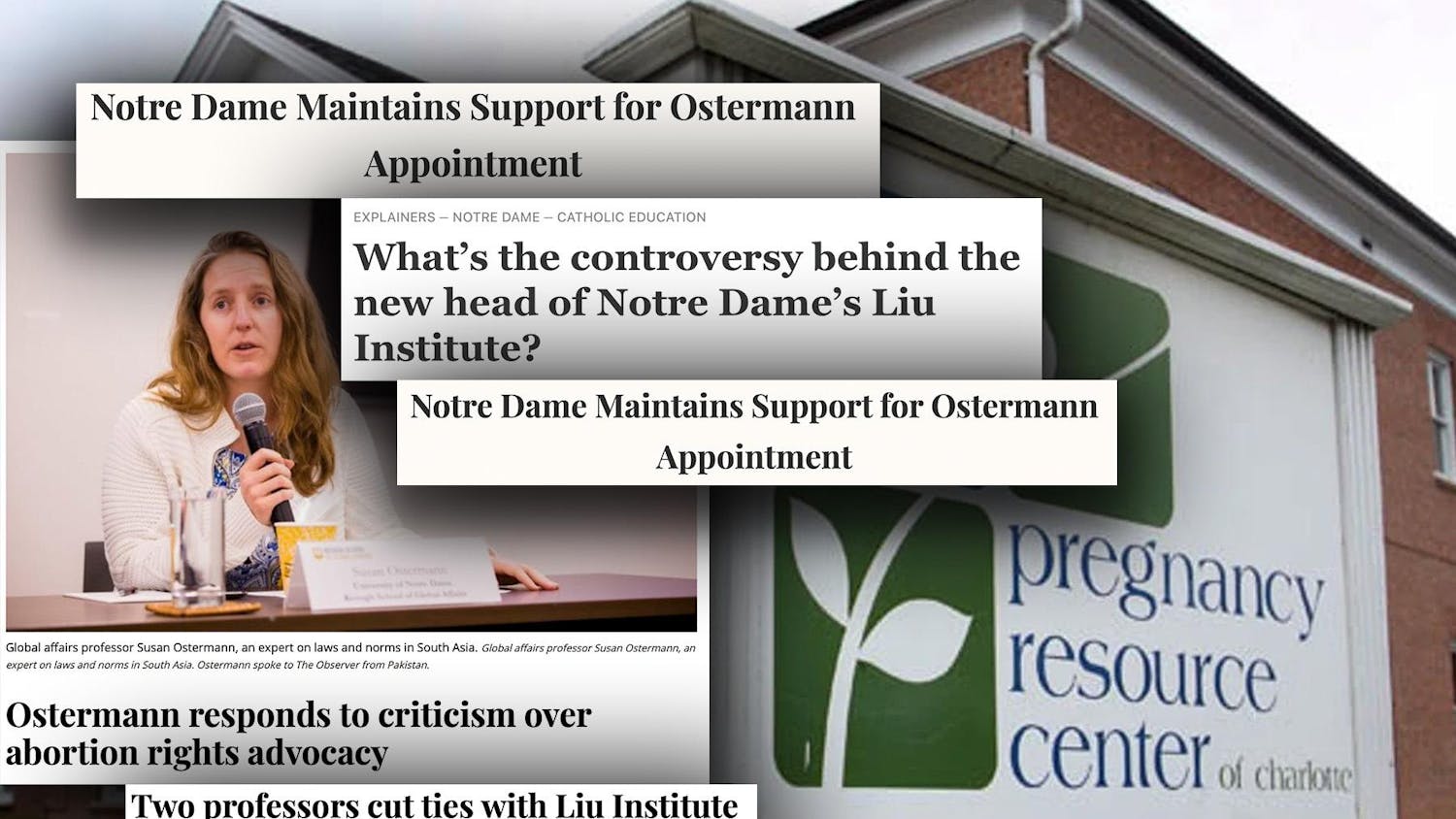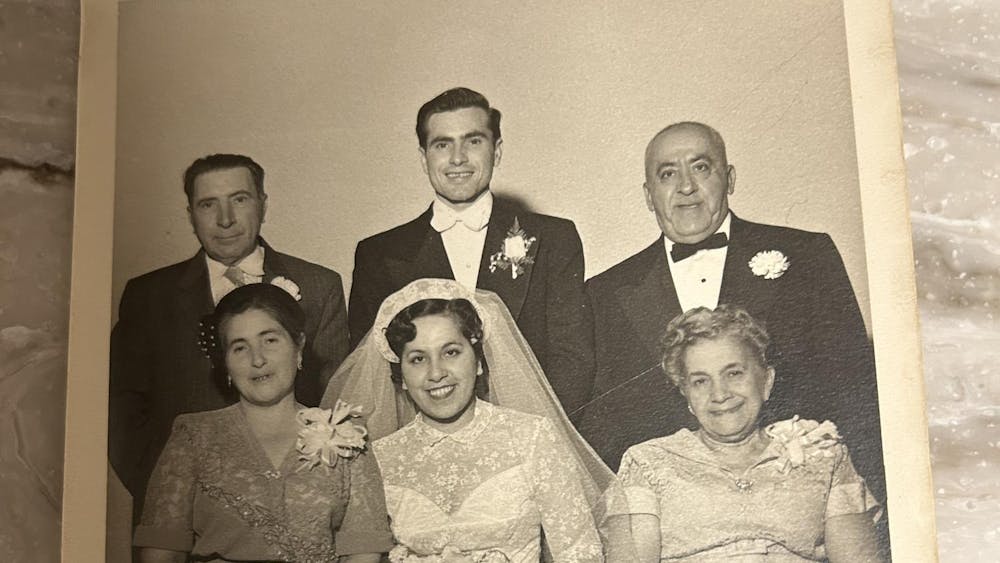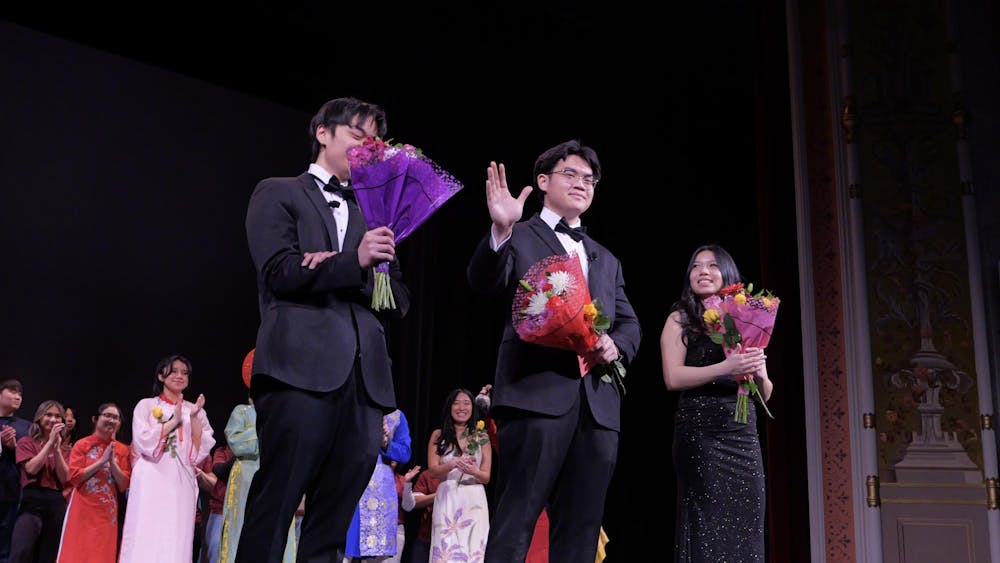Notre Dame’s mission statement states that “[w]hat the University asks of all its scholars and students […] is not a particular creedal affiliation, but a respect for the objectives of Notre Dame and a willingness to enter into the conversation that gives it life and character. Therefore, the University insists upon academic freedom that makes open discussion and inquiry possible.” In my opinion, the key phrase here is “willingness to enter into the conversation.” After reading multiple viewpoints on both sides regarding Ann Coulter’s upcoming visit to Notre Dame, it seems clear we are forgetting this key aspect of the University’s aspirations. Regardless of political views, personal beliefs or any other factor affected by Coulter’s visit, it is the individuals’ responsibility to listen to views opposing their own if they desire to be productive participants in the conversation of social conservatism. Yes, we have a right to free speech, but is it really productive to insult opposite viewpoints with hurtful and biased responses? Personally, I believe not.
Notre Dame’s mission statement also states that “the University seeks to cultivate in its students not only an appreciation for the great achievements of human beings but also a disciplined sensibility to the poverty, injustice and oppression that burden the lives of so many.” By bringing Coulter to campus, the College Republicans are participating in the discussion on the incorporation of conservative values into politics. While Coulter’s disrespectful comments in the past may not represent conservative ideals in the most positive light, it is the responsibility of all who oppose her views to accept the club’s right to host her on campus.
The project, “I, Too, Am Notre Dame,” has recently caused controversy as well. These students also have a right to address the problem of racial prejudice on campus, a topic of equal importance that must be discussed too. Again, those who feel that these students’ presentations paint the University’s student body in a negative light are allowed to hold their own personal beliefs, but they, too, must accept these students’ right to do so.
In essence, both groups are attempting to accomplish the same thing: to gain perspective on major issues that affect millions of people every day. While they might cause offense, the issues both of these groups bring to light are serious topics students on our campus deal with every day. Preventing the open discussion of these topics only further inhibits productive dialogue.
Instead of trying to lambast opposing viewpoints on how to address the issues that both the “I, Too, Am Notre Dame” project and the College Republicans bring up, what we really need is to attempt to understand all sides of these discussions and why various groups hold certain views. By disregarding the legitimate concerns of groups whose views we do not fully understand, we prevent ourselves from developing an informed belief and playing a role in determining how to address many of these issues. Addressing both the issues of racial prejudice and of the integration of Christian beliefs into politics are complex tasks for our campus to tackle, but we will get nowhere unless we can discuss these problems with respect for and open-mindedness toward those who hold different beliefs than our own. No one group of people will be able to come up with a solution to the massive issues we all experience on a regular basis. Only open, mature dialogue will be able to address the root of our concerns.
Here is my challenge for the students who are involved in the recent controversies on campus: Instead of demeaning the views of those with whom you disagree, take the time to understand why they hold their beliefs and why they choose to make their decisions. You may still disagree with them, but at least you will have a better understanding of the issue you are debating and a greater respect for your opponent.
Is that not the essence of our University’s ideals: to foster intellectual conversation on how to solve injustices in our society, all while growing to understand viewpoints that differ from our own? Therefore, it is our duty not only as students at Notre Dame (and, in many cases, as Christians), but as citizens of a country focused on creating equal opportunities for every citizen, to work with people of all backgrounds and beliefs to create a community that fosters the growth of all.
If we all continue to defensively attack viewpoints we do not understand, we will get nowhere in solving the injustices we all must face each day.
Ashley Murphy
sophomore
Howard Hall
Only open, mature dialogue prevails
The views expressed in this column are those of the author and not necessarily those of The Observer.









